How to Save Your Indoor Garden From Becoming Bug Food
There’s nothing plant-lovers fear more than drooping flowers or browning leaves. Whether it’s an indoor garden or a singular succulent, no houseplant is safe from an insect infestation. Luckily, there are ways to be proactive and spot the bugs before they test your green thumb.
Here are five common insects that make your greenery their homes and how you can best spot an infestation this summer.
Aphids
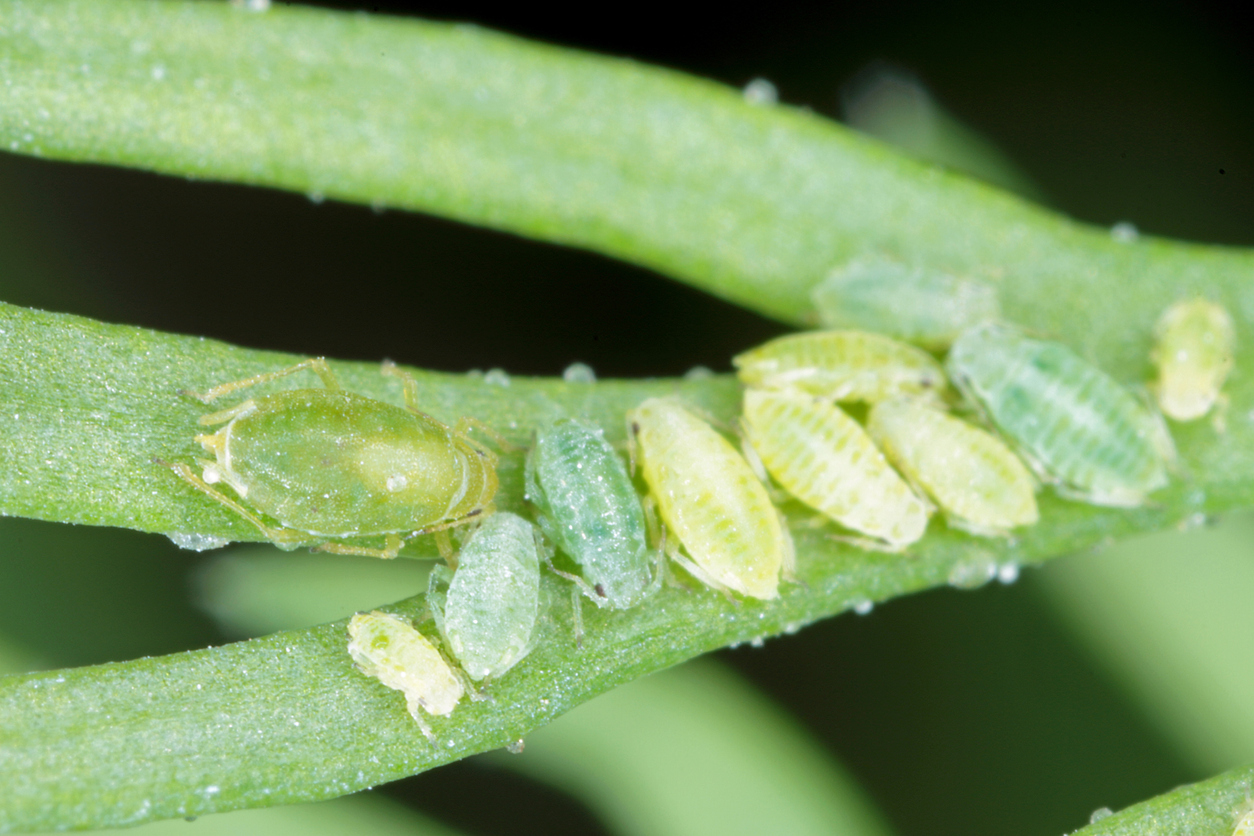
Aphids are one of the most common insects found on plants, both outside and inside. They are very small and multiply quickly, which equals a terrible infestation.
Aphids are teardrop shaped and can be black, red, green, yellow, or brown and group together on the underside of leaves, new growth, or flower buds.
Their range of damage includes deformed or stunted plant growth and leaf and bud drop. To identify an Aphid infestation, look for a sticky residue around the base of your plants, tiny white specks, or clusters of small insects.
Mealybugs
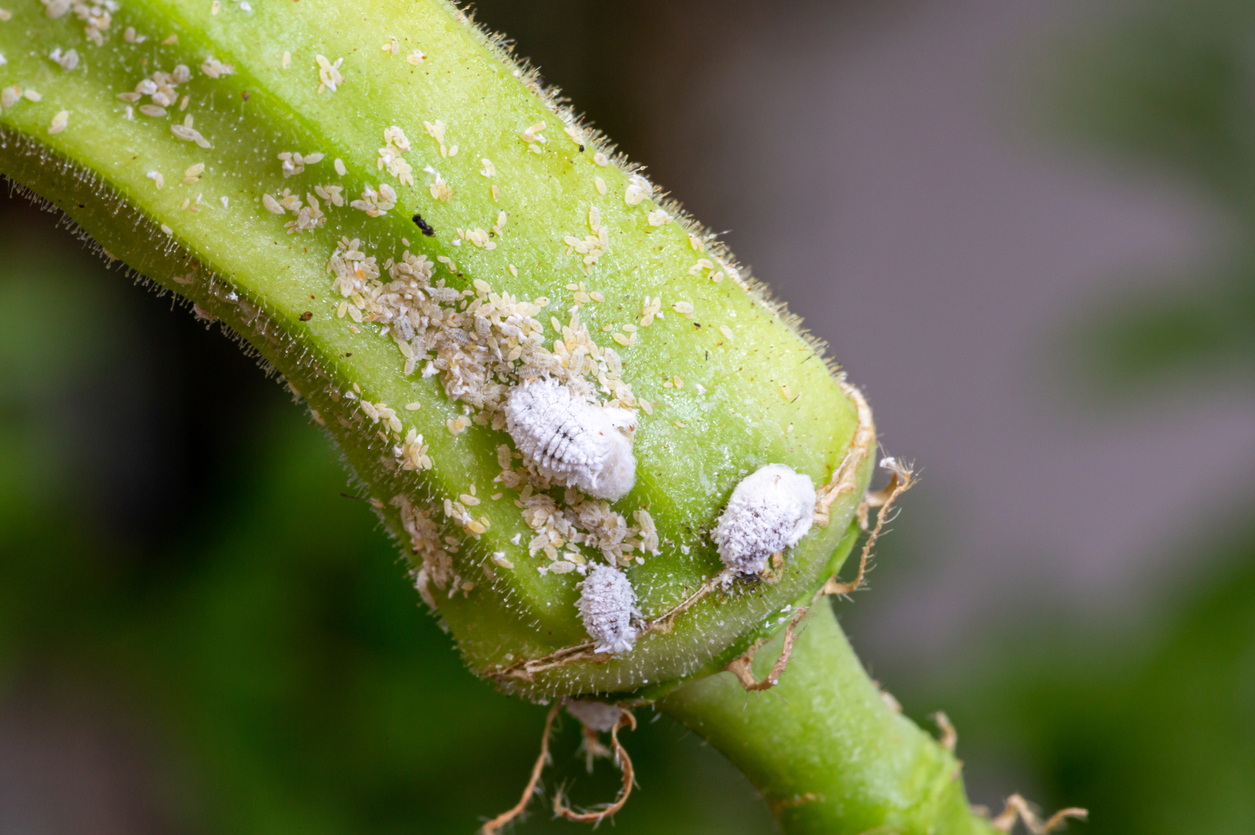
Mealybug infestations are often mistaken as mold or fungus, as they appear to be fuzzy and unmoving. However, these soft-bodied insects can quickly ruin your favorite indoor plant.
Mealybugs resemble cotton or white powder, and they tend to clump together on stems, leaf joints, or the veins of leaves. If your plants are experiencing deformed or stunted growth or leaf or bud drop, look for a white sticky substance and clusters of cotton-like insects.
Spider Mite
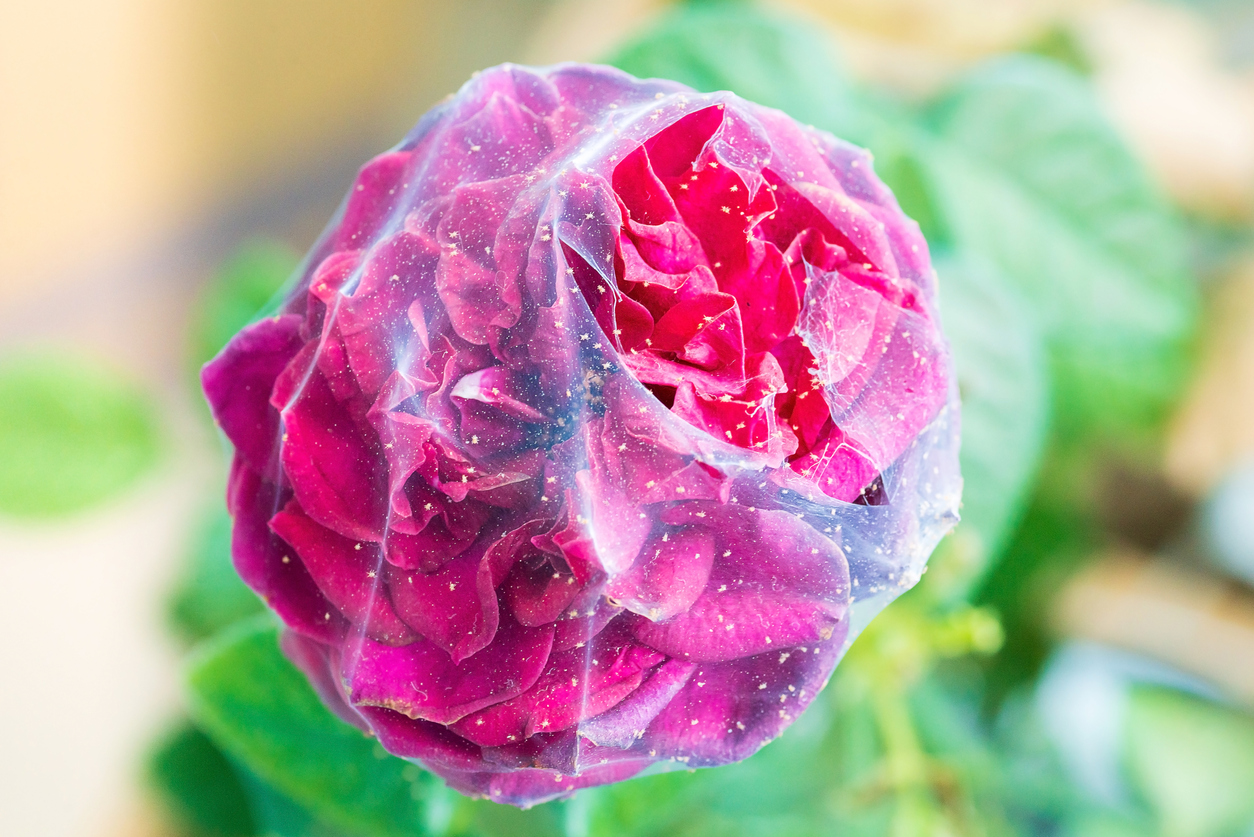
Spider mites are exactly what they sound like — tiny creatures that spin webs around your favorite indoor plants.
Signs of a spider mite will typically first show on the underside of leaves or any new growth. The almost-microscopic spiders can cover the entire plant in silky, sticky webbing. If not using a magnifying glass, they appear to be red, yellow, black, or brown crawling dots.
If left untreated, spider mites will cause deformed, dead, and dried-out leaves and flowers.
Whiteflies
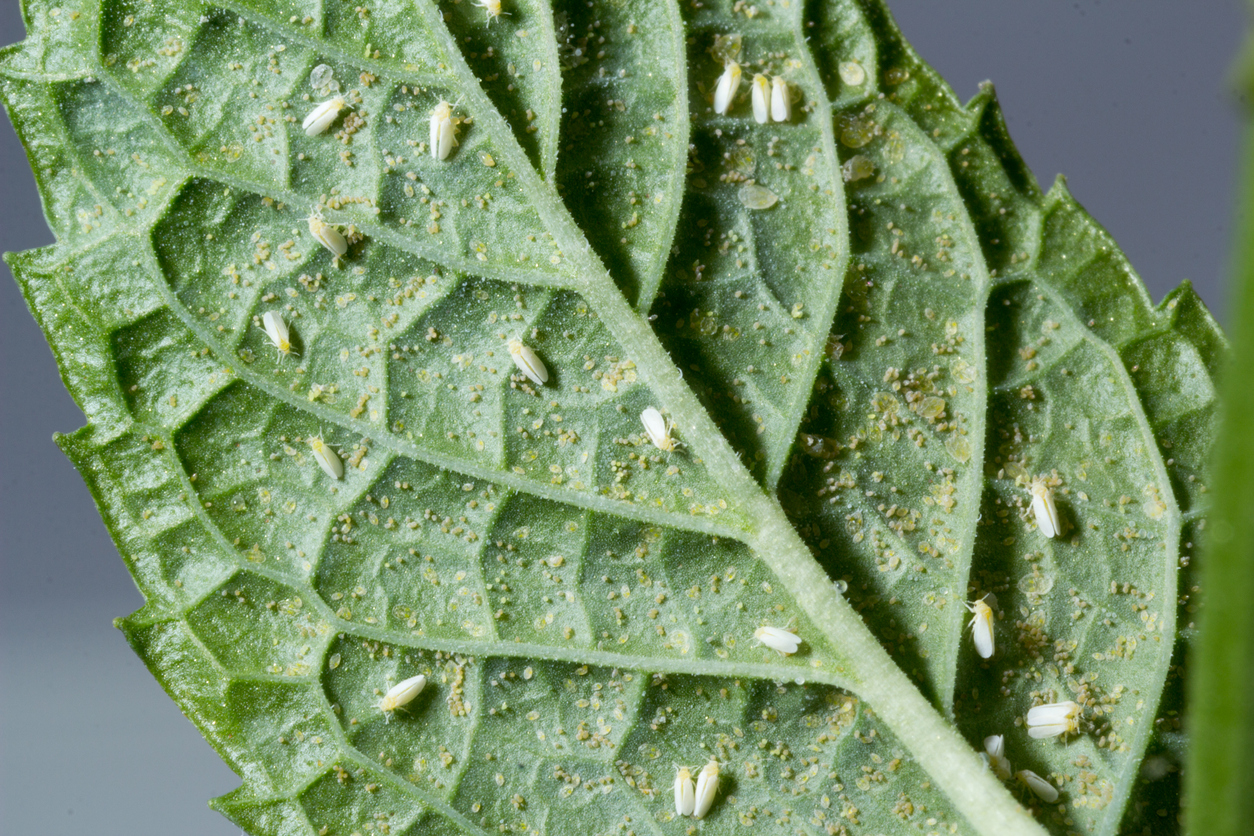
These moth-like bugs cannot survive cold temperatures, which means they seek warmth inside homes, nestled in your indoor garden.
Whiteflies are tiny, flying white insects that reproduce rapidly, laying eggs on the undersides of leaves. They suck your plants dry by feeding on sap, leaving them wilted, stunted, and yellowed.
They usually come into a home on a leaf from an infested greenhouse, so be sure to inspect any new plants after buying. If your plant is infested, you will be able to see the small white flies crawling on the bottom of the leaves.
Fungus Gnats
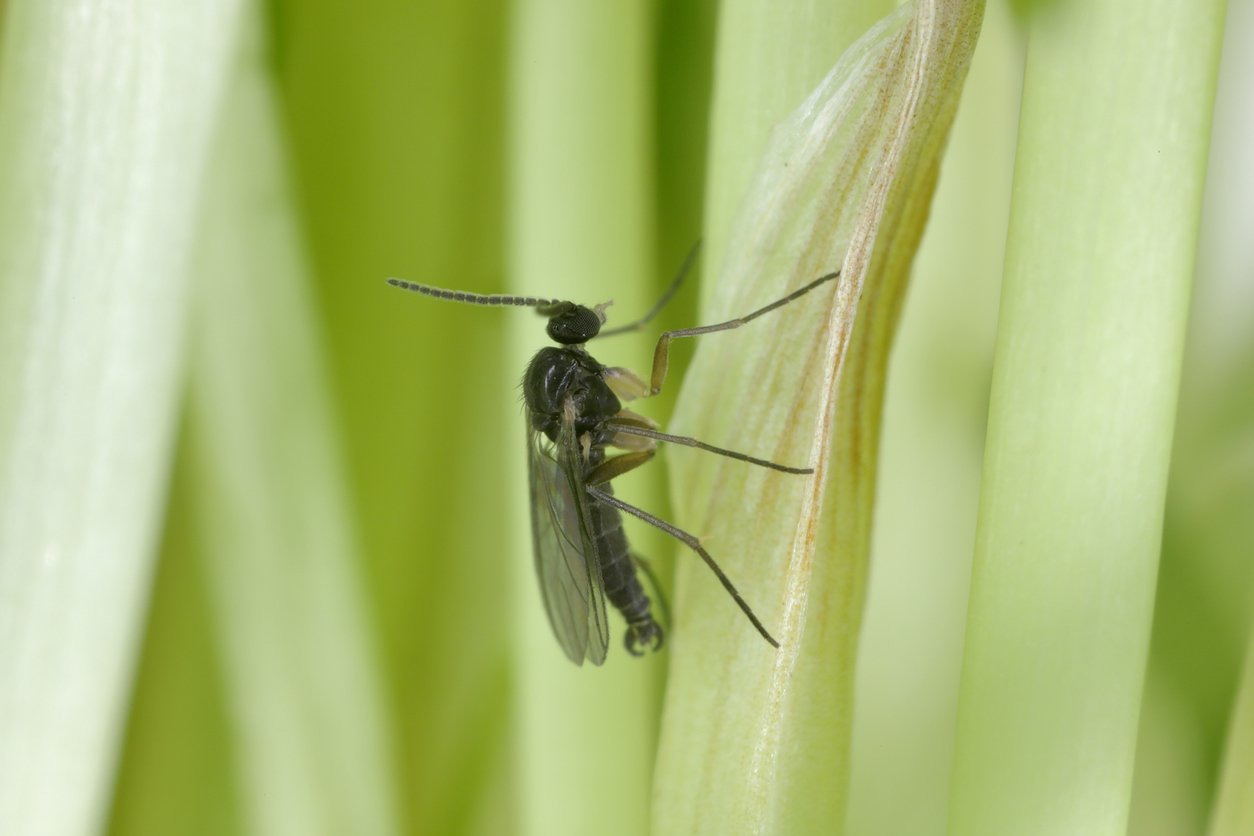
The fungus gnat (or soil gnat) is the most common houseplant bug and can be found flying around potted plants and wet soil.
They begin as small white worms in the soil and become the tiny black bugs you might have seen hovering around your plants. They don’t cause direct damage to plant flowers or leaves, but they do feed on roots; therefore, large populations can easily damage a houseplant or two.
If you find any insects in your indoor garden, don’t sprint to the nearest trash can to toss both your plants and your dreams of becoming a botanist. There are quick ways to remove these infestations without harming your greenery. Contact Arrow Exterminators today and let the professionals save your indoor plants and prevent future infestations.

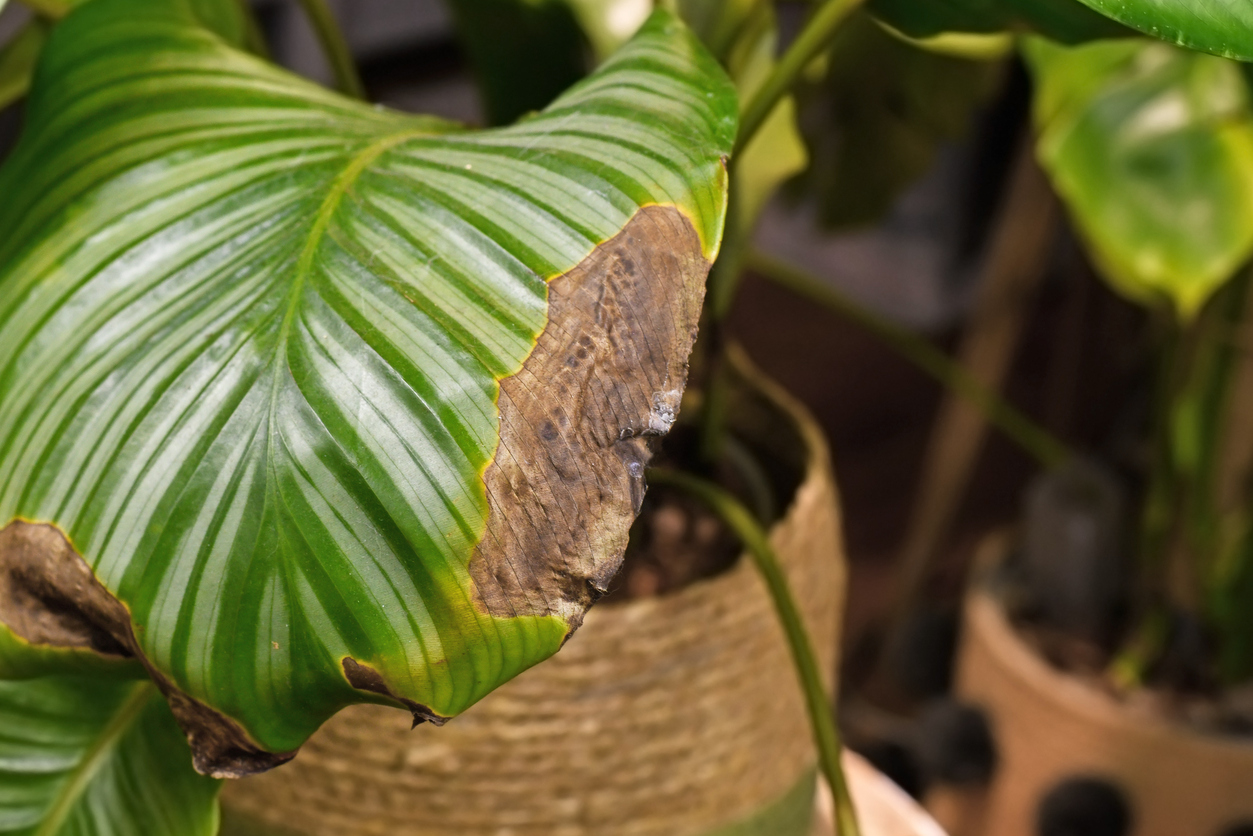




 YouTube
YouTube Facebook
Facebook Twitter
Twitter Instagram
Instagram